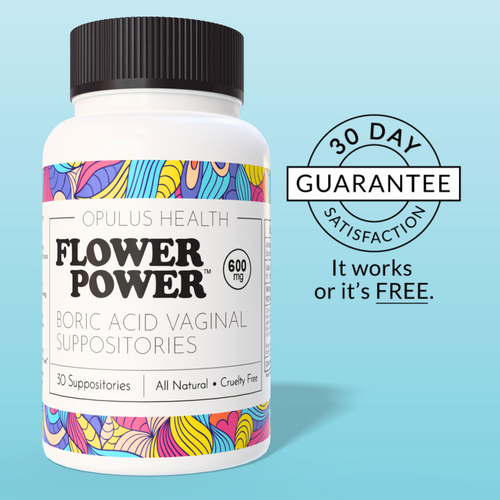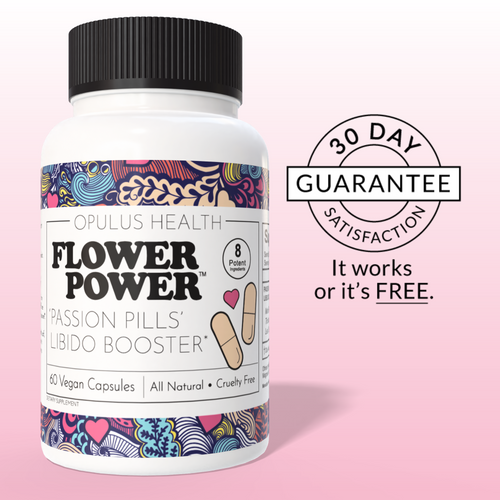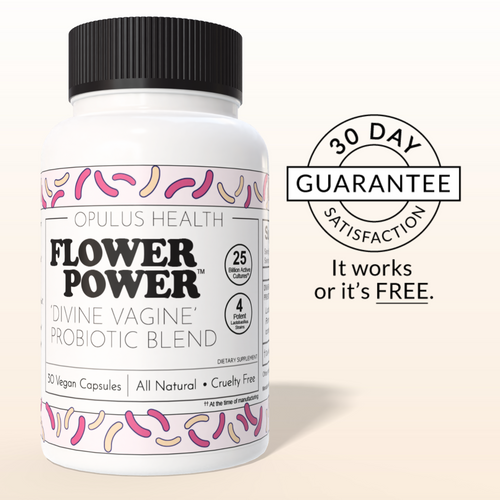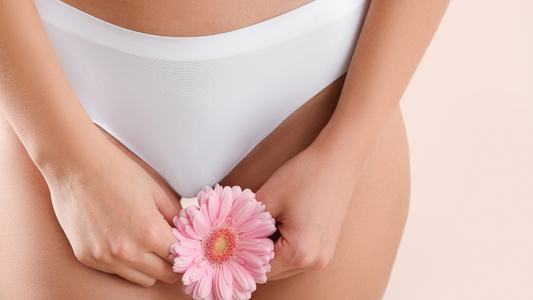Vaginal dryness is a condition that affects millions of women worldwide, yet it remains a topic shrouded in silence and misunderstanding. While many associate dryness exclusively with menopause, the truth is that women of all ages can experience insufficient vaginal lubrication. This often-overlooked issue can lead to discomfort, irritation, and even a decrease in sexual satisfaction.
Recent studies indicate that up to 35% of women between the ages of 18 and 50 experience occasional dryness, with the prevalence increasing with age. Despite these numbers, societal taboos and embarrassment often prevent women from seeking help, leaving many unaware that solutions exist.
In this article, we’ll explore why vaginal dryness is more common than you think, what causes it, and the natural, hormone-free strategies that can help maintain optimal vaginal moisture for comfort and long-term health.
Understanding Vaginal Dryness
What Is Vaginal Dryness?
Vaginal dryness occurs when the vaginal mucosa—the delicate tissue lining the vagina—produces insufficient natural lubrication. This lubrication is essential for protecting the vaginal tissue from friction, infection, and inflammation. Dryness can manifest as itching, burning, irritation, and discomfort during sexual activity, but it can also occur silently, affecting overall vaginal health.
Why Supporting Vaginal Moisture Matters
Maintaining vaginal moisture is critical for both comfort and tissue integrity. When the mucosa is inadequately hydrated, it becomes more susceptible to micro-tears, inflammation, and infections such as bacterial vaginosis or yeast infections. Chronic dryness can also interfere with sexual satisfaction and intimacy, making proactive care essential.
Common Causes of Vaginal Dryness
Hormonal Changes
Hormones, especially estrogen, play a central role in vaginal lubrication. Declines in estrogen—whether due to menopause, pregnancy, postpartum, or birth control—can reduce natural secretions and lead to dryness. Even subtle hormonal fluctuations throughout the menstrual cycle can affect lubrication temporarily.
Medications and Medical Conditions
Certain medications, including antihistamines, diuretics, and chemotherapy drugs, can impact vaginal moisture. Chronic conditions, such as diabetes, lupus, or autoimmune disorders, also interfere with hydration and mucosal health, contributing to dryness.
Lifestyle Factors
Daily habits such as insufficient water intake, excessive caffeine or alcohol consumption, smoking, chronic stress, and wearing tight synthetic clothing can exacerbate dryness. Understanding these triggers is key to effective prevention and management.
The Prevalence of Vaginal Dryness
Why It’s More Common Than Many Think
While vaginal dryness is often thought of as a postmenopausal issue, research shows that women of all ages experience it. For example:
-
18–30 years old: Approximately 15–20% experience occasional dryness.
-
31–50 years old: Around 30–35% report moderate dryness.
-
Postmenopausal women: Up to 50% may experience persistent dryness.
Social and Psychological Factors
Many women feel uncomfortable discussing dryness, even with healthcare providers. This silence skews perceptions, making the condition seem rare when it’s actually widespread. Normalizing conversations about vaginal health can empower women to seek solutions early, preventing long-term complications.
Natural and Non-Hormonal Ways to Support Vaginal Moisture
Stay Hydrated
Drinking sufficient water is foundational. Hydration affects all tissues in the body, including the vaginal mucosa. Aim for at least 8–10 cups of water daily, adjusting for activity levels and climate.
Nutrient-Rich Diet
A diet rich in omega-3 fatty acids (salmon, flaxseeds, walnuts), antioxidants (vitamins C & E, zinc), and amino acids supports tissue integrity and mucosal hydration. Foods like cucumbers, watermelon, and oranges provide additional hydration and nutrients that promote lubrication naturally.
Gentle Hygiene Practices
Avoid harsh soaps, douching, and scented products. These can disrupt the vaginal microbiome and pH, exacerbating dryness. Use gentle, pH-balanced cleansers instead.
Breathable Clothing
Cotton underwear and loose-fitting fabrics help reduce irritation and maintain a healthy environment for the vaginal mucosa. Tight synthetic clothing can trap moisture away from the skin, causing friction and dryness.
Hormone-Free Supplements
Natural, non-hormonal supplements such as She Juicy support internal hydration. Ingredients like Slippery Elm Bark, amino acids, and probiotics nourish the mucosa, promote consistent lubrication, and complement topical moisturizers.
Common Myths About Vaginal Dryness
Myth 1: Only Menopausal Women Experience Vaginal Dryness
Fact: Women at any age can experience dryness due to hormonal fluctuations, medications, stress, or lifestyle factors. Vaginal dryness is not limited to menopause and can occur during pregnancy, postpartum, or even mid-cycle due to natural hormonal changes.
Myth 2: Vaginal Dryness Always Requires Hormone Therapy
Fact: Many cases can be effectively managed through hydration, a nutrient-rich diet, hormone-free supplements, and topical moisturizers. Hormone therapy is only necessary in specific medical situations and is not the first-line solution for most women.
Myth 3: Vaginal Dryness Means Something is Wrong With Your Health
Fact: Occasional dryness is often a normal part of life and doesn’t necessarily indicate a medical problem. Factors like stress, dehydration, or temporary hormonal shifts can cause short-term dryness, which can usually be managed with lifestyle adjustments or natural supplements.
Myth 4: Using Lubricants Makes Your Vaginal Health Worse
Fact: Using water-based or natural vaginal lubricants and moisturizers does not harm vaginal tissues. On the contrary, they provide immediate relief, protect the vaginal mucosa from irritation, and can complement internal hydration strategies, supporting overall vaginal health.
Tips for Maximizing Vaginal Moisturizer Benefits
-
Combine Internal and External Solutions: Internal supplements provide long-term hydration, while external creams offer immediate relief.
-
Consistency Is Key: Take supplements and apply moisturizers regularly as recommended.
-
Monitor Your Symptoms: Track improvements and adjust strategies as needed.
-
Integrate Healthy Habits: Maintain hydration, a nutrient-rich diet, gentle hygiene, breathable clothing, and stress management.
Frequently Asked Questions
How can I tell if vaginal dryness is normal or a problem?
Occasional vaginal dryness is common, especially during certain phases of the menstrual cycle, after exercise, or due to temporary stress. However, persistent or severe symptoms—such as itching, burning, pain during intercourse, or recurrent infections—may indicate an underlying issue that requires evaluation. Other warning signs include unusual odor, irritation that doesn’t improve with lifestyle adjustments, or bleeding. Early recognition allows for timely interventions and prevents long-term tissue damage.
Does menopause always cause vaginal dryness?
Menopause increases the likelihood of vaginal dryness due to declining estrogen levels, which naturally decrease vaginal secretions. However, not all women experience severe dryness. Lifestyle choices, diet, and the use of hormone-free moisturizers or supplements can significantly reduce symptoms. Early intervention can also improve comfort and sexual satisfaction, helping maintain vaginal health well into postmenopause.
Can supplements improve vaginal moisture effectively?
Yes. Certain natural, hormone-free supplements are specifically designed to support vaginal hydration and tissue health. Ingredients like Slippery Elm Bark, amino acids, and essential minerals work together to nourish the vaginal mucosa, restore moisture, and protect tissues from irritation. Consistent use of these supplements often leads to noticeable improvements in comfort and lubrication within days to weeks, depending on individual factors.
When should I consult a doctor about vaginal dryness?
You should seek professional guidance if dryness is persistent, causes significant discomfort, or is accompanied by pain, bleeding, or recurrent infections. Consulting a gynecologist ensures an accurate diagnosis, rules out underlying conditions, and allows for personalized treatment options—ranging from lifestyle adjustments and hormone-free supplements to medical therapies if necessary. Early consultation helps maintain long-term vaginal health and prevents complications.
Can vaginal dryness affect sexual health and relationships?
Absolutely. Vaginal dryness can lead to pain during intercourse, reduced libido, and emotional stress, which may impact intimate relationships. Addressing dryness proactively with hydration, supplements, and appropriate moisturizers can restore comfort, confidence, and sexual satisfaction.
Are there lifestyle habits that worsen vaginal dryness?
Yes. Smoking, excessive alcohol consumption, high caffeine intake, chronic stress, tight synthetic clothing, and poor hydration can all exacerbate dryness. Simple lifestyle changes—like increasing water intake, wearing breathable fabrics, managing stress, and maintaining a nutrient-rich diet—can significantly improve vaginal moisture.
Taking Control of Vaginal Health
Vaginal dryness is more common than many women realize, but it is manageable. By combining natural hydration strategies, nutrient-rich diets, gentle hygiene, breathable clothing, and hormone-free supplements, women can support vaginal mucosal health at any stage of life.
Empower yourself with knowledge, normalize conversations about vaginal health, and take proactive steps toward comfort and long-term tissue integrity. If symptoms persist or worsen, consult a healthcare professional to tailor a personalized plan.
Explore She Juicy vaginal moisture capsules and other natural solutions to take control of your vaginal health today. Share your experience or questions in the comments below to join the conversation on women’s wellness.

















